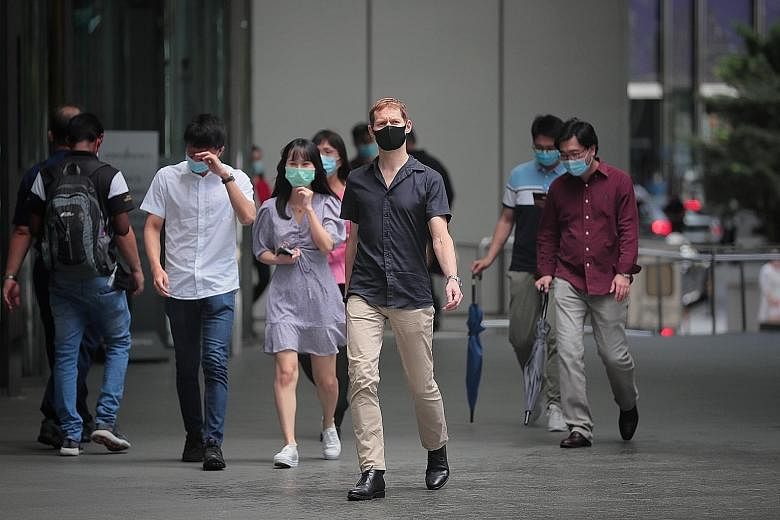Imposing quotas on higher-end foreign professionals on Employment Passes (EPs) is not unthinkable, but such a move would probably be unwise, Manpower Minister Jose-phine Teo told Parliament.
It is much better to use salary requirements to ensure companies can access foreign professionals of the right quality while committing to build up their local staff over time, she said yesterday.
"Without such flexibility, many of the top-quality investments would have been lost to our competitors, and the job opportunities along with them," she said.
Economic agencies also need flexibility when competing for the most cutting-edge investments and sophisticated activities to be moved to Singapore, she added.
Mrs Teo was responding to MPs in the parliamentary debate on the President's Address, and outlined the Government's considerations in managing the foreign workforce here as well as its efforts to support Singaporean professionals, managers, executives and technicians (PMETs), especially those in their 40s and 50s.
"We must therefore not miss the wood for the trees, by focusing narrowly on keeping foreigners out, and missing the larger picture of growing the pie and giving Singaporeans the chance of the best slice," she said.
Mr Patrick Tay (Pioneer) and Ms Foo Mee Har (West Coast GRC) had on Monday suggested introducing tiered quotas for EP holders based on different pay levels or sectors, which would limit the share of a firm's employees who can be on EPs.
Mrs Teo said that at the work permit level, the Ministry of Manpower (MOM) uses levies on top of quotas to regulate demand because the numbers of workers are large - 737,200 as at last December, not including domestic helpers.
There are also quotas limiting a firm's share of foreigners on S Passes, who are those earning at least $2,400 a month.
But at the EP level where the numbers are not as big - there were 190,000 working here in June - the key objective is to regulate quality, said Mrs Teo.
The minimum qualifying salary for new EP applications rose to $4,500 yesterday, up from $3,900. The change affects pass renewals from May next year.
With the adjustment in salary requirement, lower-end EP holders will be pushed down to the S Pass level where they are subject to the quota, something which levies do not do, said Mrs Teo.
As for employers who falsely declare salaries to meet the higher bar, and then claw back money from foreign employees under the table, the answer is to strengthen enforcement, she added.
In the last five years, MOM has taken action in over 1,200 cases of false declarations or kickbacks, which led to 388 convictions through prosecution, she said.
She noted the anxiety and heightened sense of insecurity about jobs, amid the severe impact of Covid-19.
Although unemployment has not reached the highs of past recessions, it is not a given that this will remain so, she said.
In the last severe economic downturn amid the 2009 global financial crisis, Singapore's gross domestic product (GDP) managed to grow by 0.1 per cent after a $20.5 billion Resilience Package.
This year, the Government has introduced four Budgets with support costing close to $100 billion.
But GDP is expected to shrink by 5 per cent to 7 per cent this year.
Said Mrs Teo: "We are still in the middle of a storm, and it will be some time before we see 'green shoots'."
The number of EP and S Pass holders has fallen by 22,000 between January and July this year, she added.
Still, said the minister, in this period of great uncertainty, middle-aged local PMETs are especially concerned about being disadvantaged during retrenchments compared with younger foreign colleagues, and being passed over in job applications.
Mrs Teo said MOM actively monitors retrenchment practices, and looks into aspects such as whether the employer tried other cost-saving measures before considering retrenchments and whether the company's Singaporean core was weakened as a result of the retrenchment exercise.
She noted that sometimes, older workers comprise a larger share of workers retrenched by a firm because their skill sets are less relevant to core functions.
But there has generally not been a weakening of the Singaporean core in cases seen by the ministry, she said. For instance, when Resorts World Sentosa laid off workers in July, foreign employees had to meet a higher performance bar than locals to be retained.
There are also schemes to further support local PMETs, such as the new $1 billion Jobs Growth Incentive, the nation's "biggest push ever" to help employers stretch their manpower budgets and hire more locals, she added.


